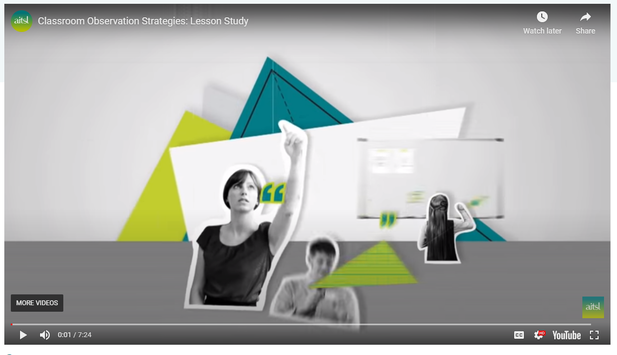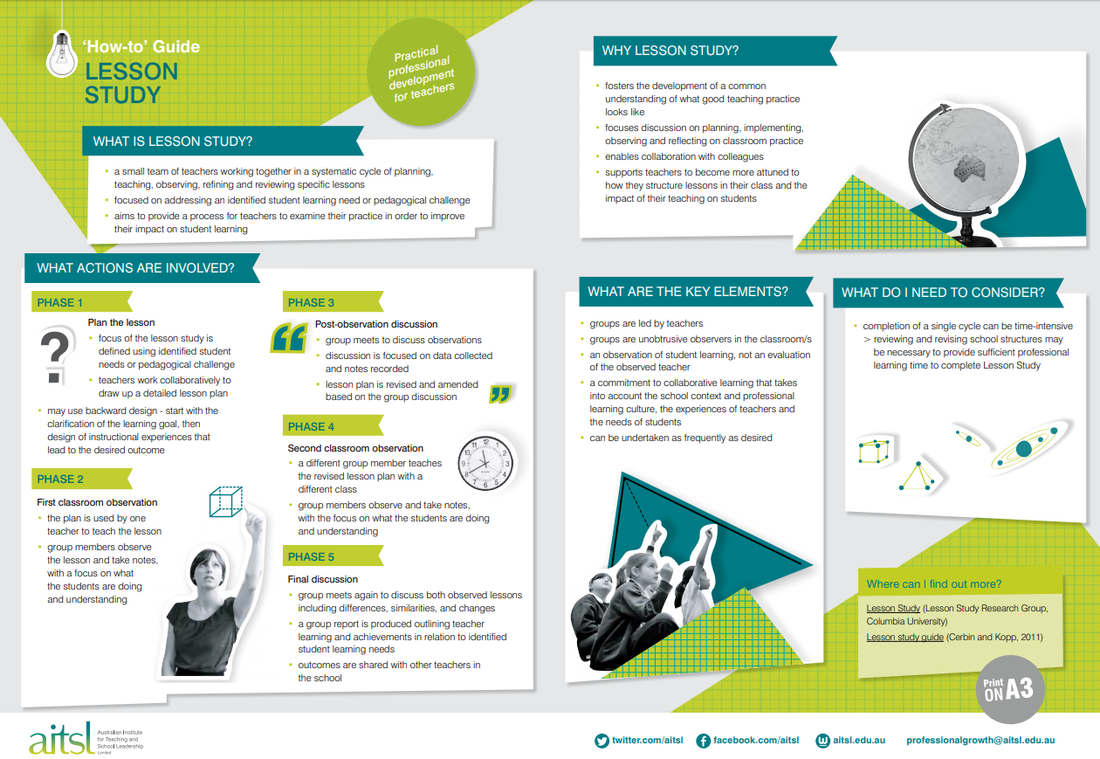AITSL - Lesson Study example
A small team of teachers working together in a systematic cycle of planning, teaching, observing, refining and reviewing specific lessons in order to examine their practice and improve their impact on student learning.

“Effective planning is an essential element of good teaching and of promoting student achievement” (Jalongo, Rieg, & Helterbran, 2007, p. 42). The Lesson Study approach is a way for teachers to engage in professional development leading to activities that promote instructional change. When teachers meet in professional learning communities to discuss planning, they become active participants in reform. Lesson Study has additional benefits by drawing teachers’ attention to student learning as they think about their own instructional actions. A further advantage of Lesson Study is that it allows teachers to observe students during the teaching of a planned lesson. As teachers observe students, they begin to see teaching from the students’ point of view. This new perspective can change deeply entrenched notions of instruction and result in better student learning.
Reflections:
What are the possible benefits of Lesson Study?
- Time and space to observe students
Take the lesson on from students point of view
- See what other teachers do
-Refine the lesson together and follow it through
- Get a snapshot of what all students are doing
- see the lesson in different classrooms
-opportunities to build expertise
What are the possible benefits of Lesson Study?
- Time and space to observe students
Take the lesson on from students point of view
- See what other teachers do
-Refine the lesson together and follow it through
- Get a snapshot of what all students are doing
- see the lesson in different classrooms
-opportunities to build expertise

